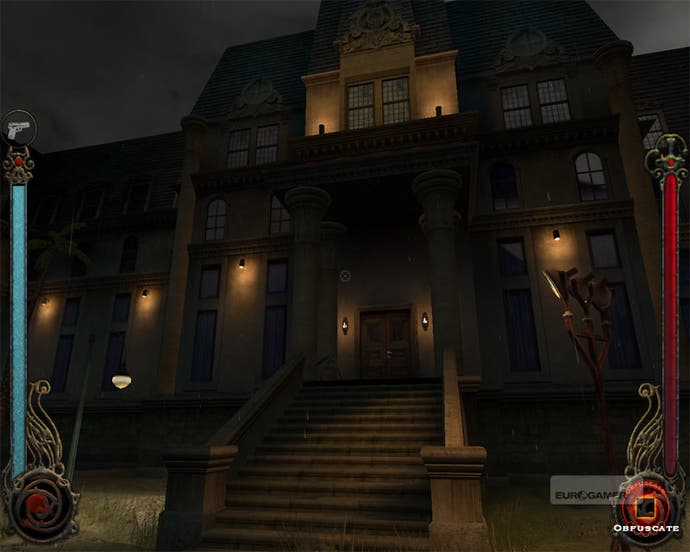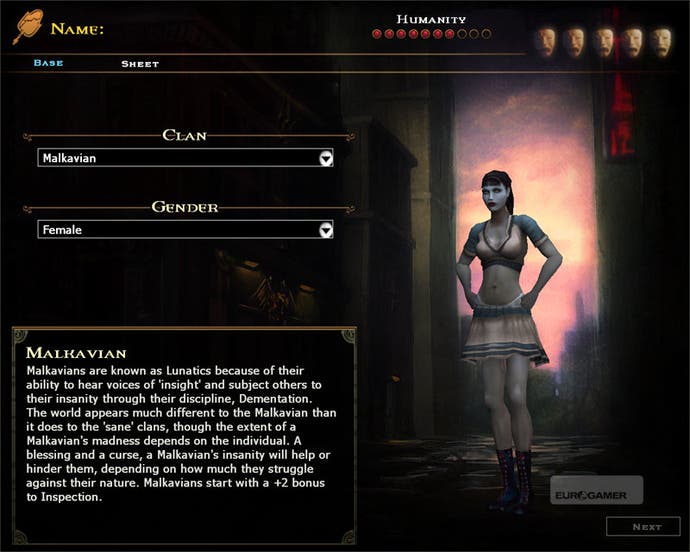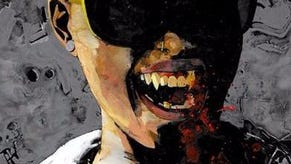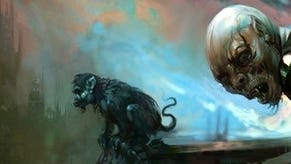Retrospective: Vampire: The Masquerade - Bloodlines
Fangs for everything.
I love the sunshine, and I've rather a taste for garlic, so I've decided I'm probably not a vampire. It's taken a while to be sure, though. The world of Bloodlines is so arresting, so marvellously cohesive, that it's difficult not to be entirely taken in. Despite the ageing visuals, the places and people of this gritty, gothic Los Angeles are frighteningly real.
Real, that is, except when an NPC hovers across the room eight inches above the ground. Or gets shot, only to fall and cry out in pain three seconds later. When a texture flickers on and off in front of you, or the game crashes you back to the painful reality of your hideously cluttered desktop. In many ways, Bloodlines was the greatest game in the world. In many others, it simply wasn't good enough.
Returning with this knowledge does it some favours. This time around, I knew it would be broken, removing much of that crushing disappointment. I also came armed with an abundance of community fixes. Bloodlines' fans are admirably dedicated. That they've felt it important enough to spend years tweaking code and (for want of a better word) revamping animations says a lot for the inspirational quality of the game itself.
And, really, it is inspiring. A seedy, present-day take on the Deus Ex formula, it bristles with life and character, particularly during the opening half. Split into a series of hubs, each a different region of the City of Angels, Bloodlines follows your fledgling vampire's rise up the undead food chain - and isn't afraid to tackle some serious issues along the way.
I was excited to experience them again. But I'd forgotten what came first. So, without fully intending to, I found myself staring up at the foreboding silhouette of the Ocean House Hotel.

In the past, I've always found myself meticulously ticking off side quests in Santa Monica - the game's first region - in the hope that somehow the Ocean House mission would mysteriously disappear. Delicately riffing on a variety of haunted house tales, most immediately The Shining, it's a glorious, self-contained horror story, a courageous format-breaker so early in the game.
The secret to its success, much like the comparable Robbing the Cradle mission in Thief: Deadly Shadows, is that it shows rather than tells. You find newspaper cuttings, drip-feeding information on the hotel's dark past. Writing appears on walls, a stark warning of things to come. And there's no overt enemy threat in Ocean House. It's just a place where some really sinister things happened, and somewhere you really don't want to be. The whole thing is impressively terrifying.
It's the little stories like that of Ocean House - the ones not obviously related to the main plot - that fascinate me most about Bloodlines. Almost every quest, mandatory or otherwise, tells a tale or explores a character. All are fiendishly intelligent, and adult in exactly the right way. Bloodlines tackles issues that would have most games cowering in a corner, but never is it crass or exploitative. It's a game about people, about the nasty truths of our society. Despite the supernatural front, it's irrefutably a game about real life.

It's a beautiful thing, and I've yet to play another game with such astounding attention to narrative detail. The script isn't just witty and intelligent; it's positively huge to boot. That each character delivers his or her lines so candidly, so effortlessly, throughout this mammoth spread of dialogue is nothing short of spectacular.
I'm almost certain they're real people, digitised. Nuanced and entirely credible, they speak with innumerable traits intact, never missing a beat. From the delightfully twisted Voerman sisters near the start, right through to Gary the Nosferatu in the later sections, each is thoroughly spellbinding.















